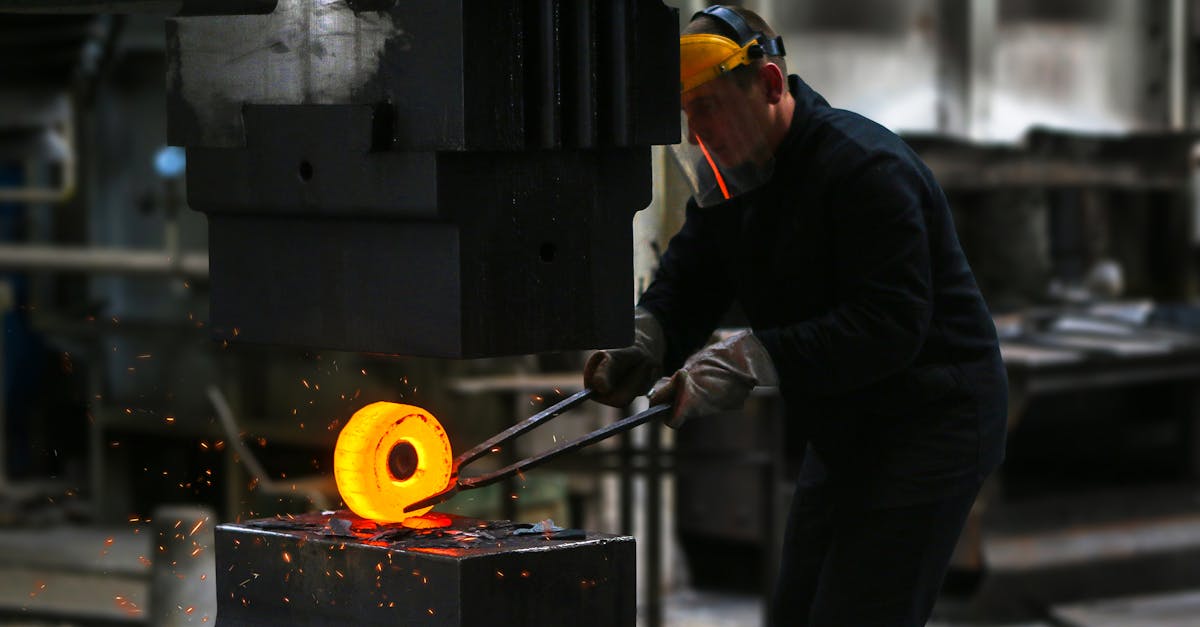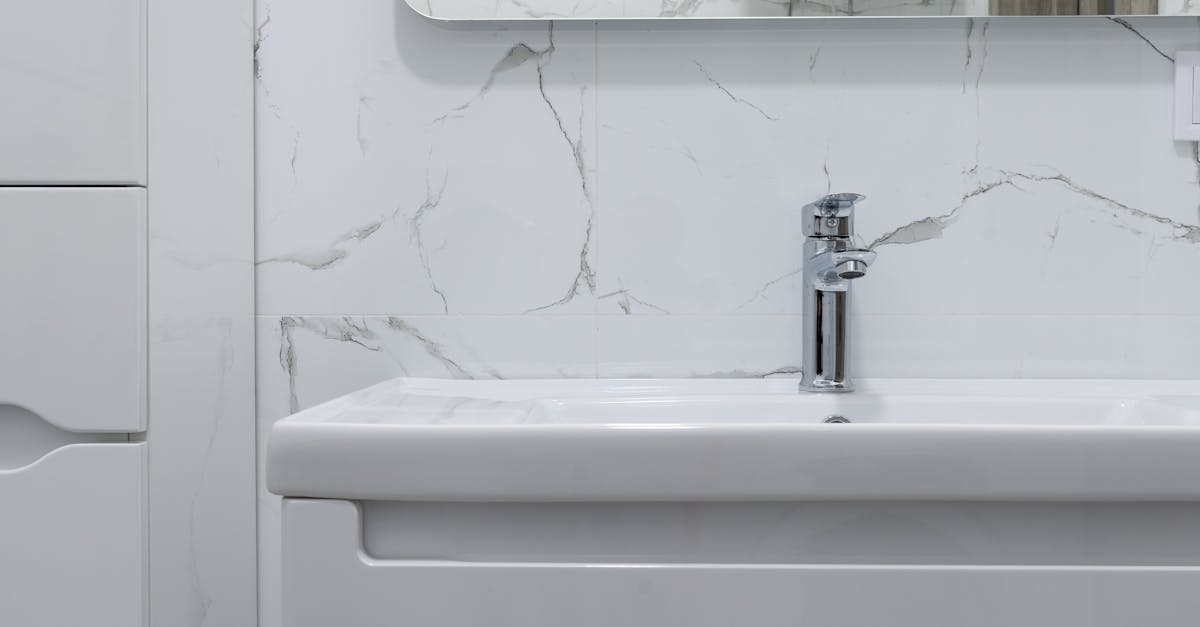
Table Of Contents
When to Call a Professional
Homeowners may feel confident tackling minor blockages with DIY methods. However, drain cleaning can sometimes involve complex issues that require professional expertise. If repeated attempts to clear a clog prove unsuccessful, it may indicate a more significant underlying problem, such as tree roots invading pipes or deteriorating plumbing. These situations are best handled by licensed plumbers who can assess the issue with the right equipment and knowledge.
Another sign that it's time to call a professional is when drains begin to emit foul odours or if water backs up in multiple fixtures. These symptoms suggest that the problem is more extensive and could potentially pose health risks. Relying solely on acid-based cleaners in such instances may not only fail to resolve the issue but could also lead to further damage. Seeking the help of an expert ensures a thorough diagnosis and proper solutions for effective drain cleaning.
Signs That DIY Isn't Enough
Knowing when to abandon a do-it-yourself approach to drain cleaning can save both time and effort. If attempts to clear a blockage with common household solutions or basic tools have failed multiple times, it may be an indication that the issue is more serious than a simple clog. Persistent slow drainage, unusual smells, or gurgling sounds can signal that something deeper within the plumbing system requires professional attention.
Additionally, if you notice multiple fixtures in your home being affected simultaneously, it usually points to a more significant blockage in the main sewer line rather than isolated issues. In such cases, using harsher chemical agents or attempting more aggressive DIY methods can exacerbate the situation and lead to costly repairs. Understanding these signs is crucial in determining when to seek help from a qualified plumber.
Effectiveness of Acidic Cleaners
Acidic cleaners are popular among plumbers for their ability to dissolve tough clogs caused by grease, hair, soap scum, and other stubborn debris. These cleaners contain potent active ingredients, such as sulphuric acid or hydrochloric acid, that break down organic materials efficiently. When used appropriately, they can penetrate deep into the clog, often leading to quick results. However, the effectiveness of these cleaners can vary depending on the nature and severity of the blockage. Persistent or recurring issues may indicate a more serious plumbing problem that acid cannot resolve.
Despite their strength, drain cleaning with acidic solutions carries certain risks. They can generate heat and potentially damage pipes, especially older or more delicate systems. It's essential to follow safety protocols and manufacturer guidelines to mitigate these risks. Additionally, while acidic cleaners may provide quick fixes, they do not address underlying issues that could contribute to clogs, such as poor drainage design or accumulation of materials within the plumbing system. Plumbers often recommend a combination of techniques for long-term efficacy and to prevent future blockages.
Comparison with Other Drain Cleaning Methods
Plumbers often rely on acidic cleaners for tough clogs, but drain cleaning can also be approached through various other methods. Mechanical options, such as drain snakes and augers, can effectively break through blockages without the harshness of chemicals. These tools physically remove debris, providing immediate results and reducing the risks associated with acidic products. However, using mechanical methods can require a certain level of expertise to avoid damaging pipes.
Enzymatic cleaners offer a more environmentally friendly alternative to acidic substances in drain cleaning. These products use natural bacteria and enzymes to break down organic matter over time, making them safe for pipes and the environment. While they may require a longer duration to achieve noticeable results, their gentler approach can prevent potential damage. Choosing between these methods depends largely on the nature of the clog and the health of the plumbing system.
Environmental Concerns with Acid Use
The use of acidic solutions for drain cleaning raises several environmental concerns. Many of these products contain strong chemicals that can leach into the groundwater system, potentially contaminating local water supplies and harming aquatic ecosystems. Additionally, when these substances are disposed of improperly, they can contribute to soil degradation and harm plant life, posing risks that extend beyond the immediate area of use.
Moreover, the corrosive nature of acids can damage plumbing infrastructure over time. While they may provide a temporary fix for clogs, the long-term effects can lead to increased waste from frequent repairs or replacements. Considering these factors, individuals and businesses may want to explore alternative drain cleaning methods that are more environmentally responsible while still effectively managing clogs.
EcoFriendly Practices
Adopting eco-friendly practices for drain cleaning can significantly reduce the environmental impact associated with traditional chemical cleaners. Many plumbers now recommend using biodegradable alternatives that are less harmful to aquatic life and ecosystems. These products often utilise natural ingredients, making them a safer choice for households and the environment.
In addition to using eco-friendly cleaners, implementing simple preventive measures can help maintain clear drains without relying heavily on chemicals. Regular maintenance such as using strainers to catch debris and pouring hot water down the drain can minimise the risk of clogs. These practices not only promote sustainability but also extend the life of plumbing systems.
FAQS
What type of acid do plumbers commonly use to unclog drains?
Plumbers often use hydrochloric acid or sulfuric acid to unclog drains due to their strong corrosive properties, which help dissolve tough blockages.
Are acidic drain cleaners safe to use at home?
While acidic drain cleaners can be effective, they can also be dangerous if not used properly. It's crucial to follow instructions carefully and consider wearing protective gear.
What are the signs that I should call a professional plumber instead of using acid cleaners?
Signs that DIY isn't enough include persistent clogs that don't clear, multiple clogged drains, or if you notice unpleasant odours or water backing up, indicating a more serious issue.
How do acidic cleaners compare to other drain cleaning methods?
Acidic cleaners can be more effective for tough clogs than some other methods, but they can also cause damage to pipes if used excessively. Methods like drain snakes or hydro jetting may be less harmful and just as effective for certain blockages.
Are there eco-friendly alternatives to acidic drain cleaners?
Yes, there are eco-friendly options, such as baking soda and vinegar, which can help dissolve mild clogs without the harmful effects associated with strong acids.





























